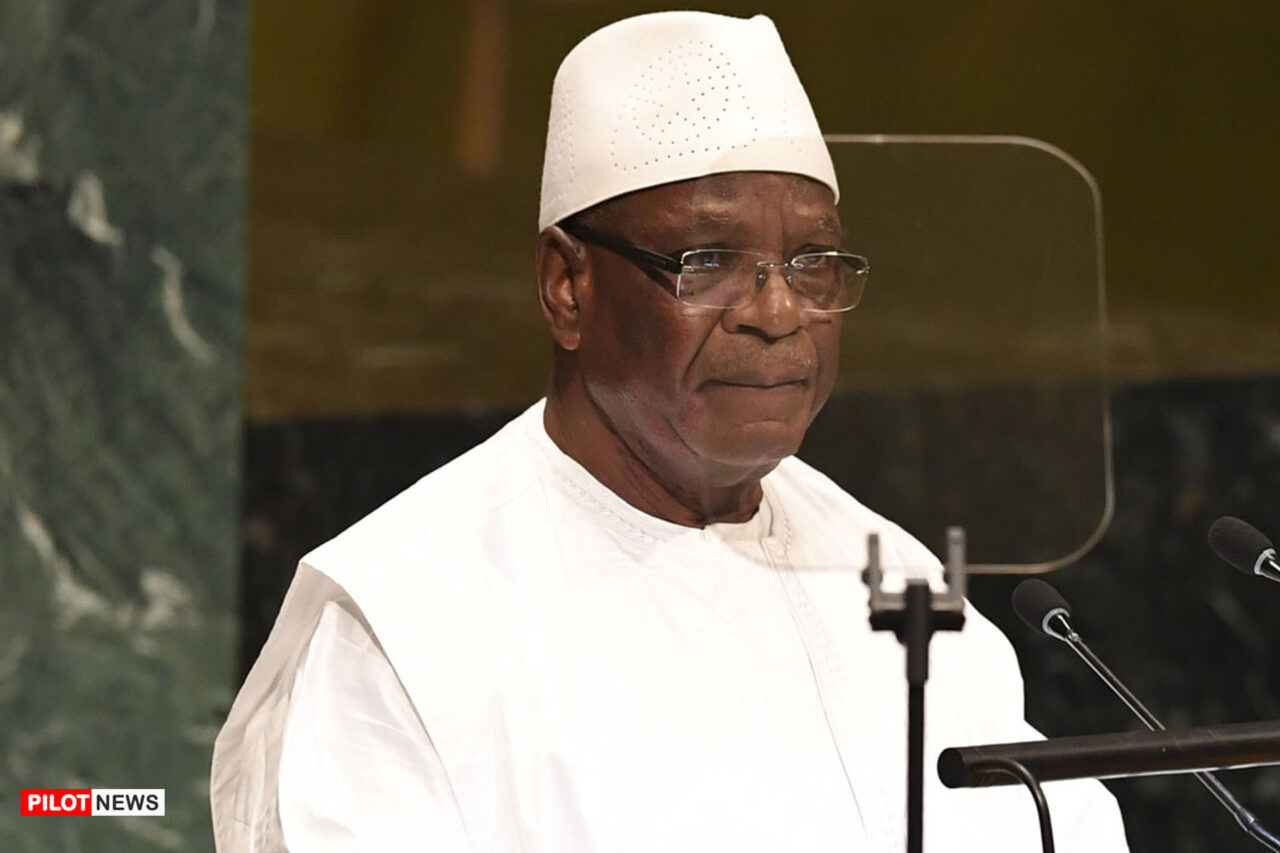The embattling President of Mali, Ibrahim Keita, on Wednesday, announced his resignation hours after his arrest by troops in a sudden coup that followed a months-long political crisis in the West African nation. Keita said it is to avoid “bloodshed”.
The President and Prime Minister Boubou Cisse were detained on Tuesday afternoon by rebel soldiers. Both of them drove to a military base in the town of Kati, near the capital Bamako, which had been seized that morning.
Crowd jubilating in the city centre had gathered to demand for Keita’s resignation. They cheered the rebels as they made their way to the official residence of the 75-year-old president.

The President looked calm as he appeared in a state television broadcast after midnight to declare the dissolution of the government and national assembly, he said he had no choice but to resign with immediate effect.
In his words, “If it pleased certain elements of our military to decide this should end with their intervention, do I really have a choice?” he said of the day’s events.
“(I must) submit to it, because I don’t want any bloodshed.”
It is yet to be known if Keita was still in custody at the Kati base, which was also the site of the 2012 coup that brought him to power.
Neighboring states, France and the European Union have warned against any unconstitutional transfer of power as the coup played out on Tuesday.
The Secretary-General of the United Nations (UN) Antonio Guterres demanded for the “immediate and unconditional release” of Keita and Cisse as diplomats in News York, saying that the Security Council of the UN will on Wednesday have an emergency talk.
The Economic Community of West African States (ECOWAS) has also condemned the coup in a statement. It pledges to close land and air borders to Mali and push for sanctions against “all the putschists and their partners and collaborators”.
The 15-nation bloc (Mali included) added that it would suspend the country from its internal decision-making bodies.
Also, the United States and France released separate statements expressing deep concern about the development and urged against the change in regime.
France President, Emmanuel Macron had discussed the crisis with presidents of Nigeria, Ivory Coast and Senegal and expressed his “full support for the ongoing mediation efforts of West African states”.
His office added that Macron “condemned” the mutiny.
The US envoy to the region J. Peter Pham, had also called for restraint and made his opposition to the “unconstitutional” change known.
Background
Keita and Cisses’s sudden detention came following an apparently conciliatory message from the government in Bamako – which had encouraged the soldiers to engage in dialogue.
Without further details, the Prime Minister’s office in a statement said “The observed shifts in mood reflect a certain frustration that may have legitimate causes.”
It added that the government was open to “fraternal dialogue in order to remove all misunderstandings”.
The narrative met with the opposition plans to resume protests against Keita.
Since June, there had been political unrest in Mali, and the President, Keita, had faced increasingly number of strong protests demanding for his resignation.
The June 5 Movement, had seen dire economy, perceived government corruption and brutal juhadist conflict as reasons for its protest.
The opposition alliance’s anti-Keita campaign resulted into crisis last month where it claimed 11 lives in a three-day unrest that followed the demonstration.
Mali is the linchpin of French-led efforts to roll back jihadists in the Sahel, and its neighbors are anxious to avoid the country falling into chaos.
Swathes of its territory are already outside of the control of government, which is struggling to bring an end to the Islamic insurgency which first emerged in 2012 and had claimed thousand of lives.
According to analysts, the failure to bring an end to the conflict fueled the frustration against keita’s administration.
In April, there was tension when the government held a long-delayed parliamentary election, meanwhile, the results are still disputed.
ECOWAS last month, proposed the formation of a unity government while sticking by Keita, but the opposition opening rejected the compromise.

